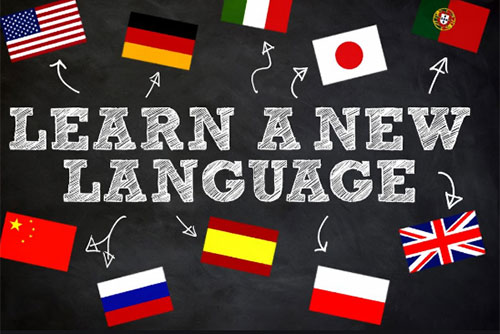
Ielts Speaking Part 3 Language Learning Topic – Sample 8.0 -9.0 from Ielts Speaking Book by Duong Vu 8.5 Ielts – Sách tự học Ielts Speaking hướng dẫn chi tiết cách trả lời, ý tưởng, kèm câu trả lời mẫu BAND CAO, click here
Is it important for children to learn another language?
Absolutely. I believe learning another language can benefit young people in numerous ways. The most significant merit might possibly be the ability to communicate smoothly and effectively with people coming from that particular country, which could pave the way for a brighter career path. Additionally, a language is often seen as the windows into an entirely different culture so those who master a foreign language tend to become more tolerant and broad-minded, which in turn contributes significantly to their professional and personal life as well.
When should children start learning language?
Well, when it comes to language learning, I believe the sooner the better. The ideal age for doing so might probably be 3 or 4. I tend to take the view that little children are capable of acquiring linguistic skills faster and more effectively than older ones. This is mainly because mimicking makes a large part of learning a language and babies outdo older kids in this. Also, they tend to be more inquisitive and eager to absorb new knowledge during their formative years than in later growing stages. It doesn’t have to be formal education, just straightforward and fundamental stuffs like reading bedtime stories to them or teaching them a couple of new words on a daily basis.
What teachers should do to help language students?
No doubt, teachers play a critical role in facilitating language learning. Consistent practice makes perfect so if they can instil in their students an enormous amount of confidence and passion for practicing the four skills of language acquisition, I believe they’ve done a brilliant job. Particularly for speaking and writing, the majority of learners tend to dread making mistakes or communicating to a foreigner. If they can push themselves out of their comfort zone, then they are already halfway to mastering the language.
Which skill is more difficult to learn? Speaking or writing?
That’s a tough question really. While speaking can be daunting for some, others may be scared of writing. My own view is that it depends on the personality of the learner. For extroverts, speaking might be as easy as pie since they are fond of having conversations with foreigners, I mean native speakers. Introverts, on the other hand, might find writing much easier as they love reading and putting their thoughts into words.
Do you think grammar is important in language learning?
Oh yes, very much so. Though it seems less important than vocabulary, grammatical inaccuracy might lead to misunderstanding or even make a sentence incomprehensible. Besides, grammar rules are ways different from language to language, which makes it a daunting but indispensable part of mastering a language, especially a foreign one.
Do you think children can learn a new language faster than adults?
Yes I’d say so. The first reason is that children’s brains are developing so they can acquire new words and grammatical rules more quickly than adults. Secondly, children are more naive/ spontaneous and they aren’t afraid of making mistakes when practicing a new language. That’s why they can make progress faster than adults when it comes to language learning.
How can people learn a new language?
There are several ways to learn new languages. But the most effective way/ method I think is to immerse ourselves into a language by watching movies and listening to music in the/ that language and practicing it with native speakers.
Additionally, we can take part in a language course/ class either online or in person to learn more systematically.
What are the differences in the way children and adults learn new languages?
I’d say the most significant/ STRIKING difference is that children tend to learn by mimicking while adults mainly learn from academic materials such as books. For instance, when learning how to speak a new language, babies just copy short phrases of native speakers but adults usually study grammatical rules and vocabulary and then translate what they’re gonna say word by word.
How has language learning changed? (look up for new words in …)
Of course/ Without a doubt, language learning has changed a lot. In the past, people USED TO learn new languages through textbooks, radio and newspapers. Also, they didn’t have many opportunities to communicate with native speakers so they often struggled with pronunciation and speaking. However, these days people can use a wide range of new materials and devices for language learning, such as videos and learning apps on smartphones. They can also have countless/ endless opportunities to talk to foreigners thanks to the Internet.
Do you think learning a language through videos is better than through books?
- Videos tend to be more interesting/ captivating / stimulating so learning through them might be more effective than through books.
However, it’s crucial for learners to watch videos made by reliable and professional organizations only / (However, books are still important because they have been reviewed and edited by professionals. )
Copyright by cô Duong Vu 8.5 Ielts – 8.0 Writing
Khóa học Ielts Chuyên Sâu Band cao uy tín Ielts 6.5 – 8.0: https://idvielts.com/category/khaigiang/


Hướng dẫn cách trả lời từng dạng câu hỏi part 1, 2, 3 của bài thi Ielts Speaking: click here
Kinh nghiệm viết luân Ielts WRITING 8.0: https://idvielts.com/kinh-nghiem-viet-luan-ielts-band-8/
Follow Dương trên các Facebook sau để học các bài học Ielts 8.0+ hoàn toàn miễn phí và cập nhật nhất các bạn nhé:






